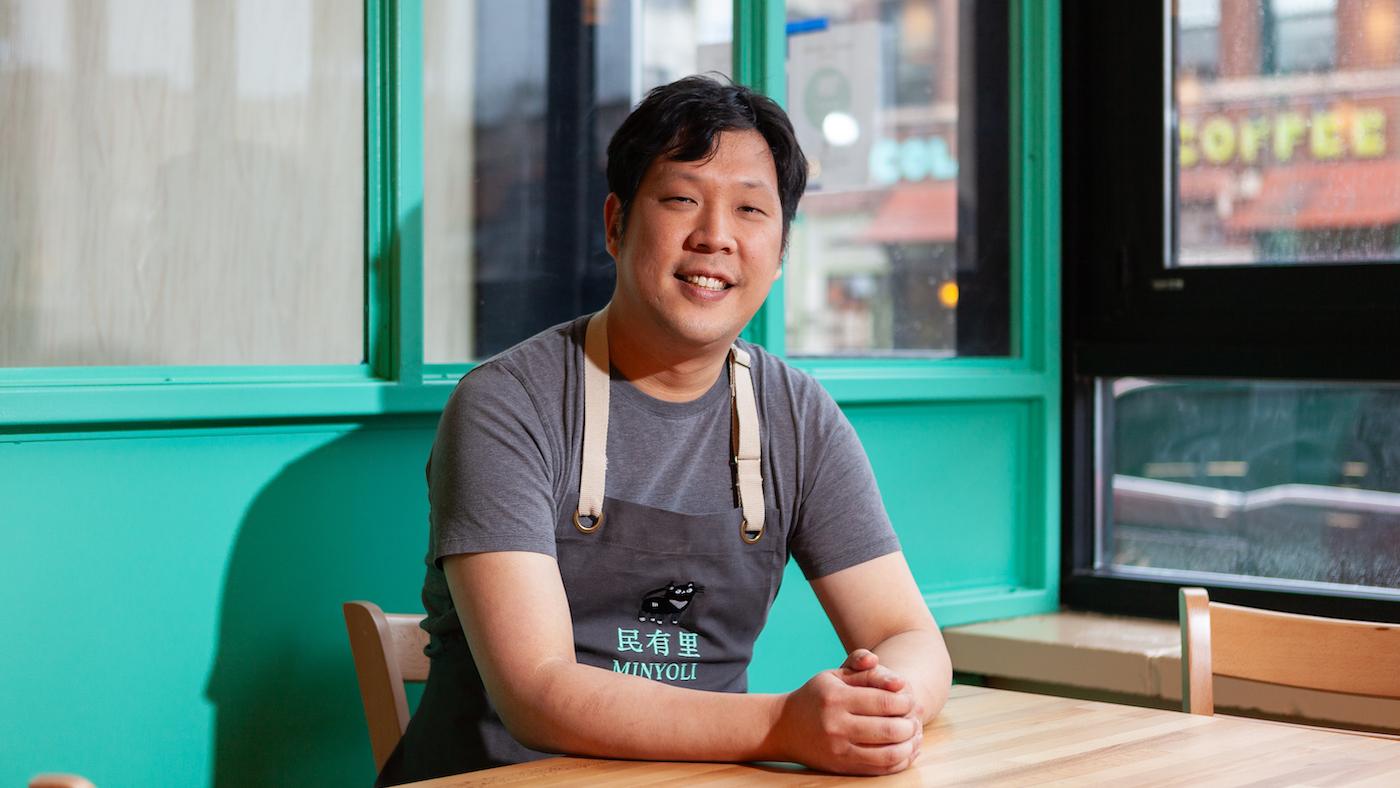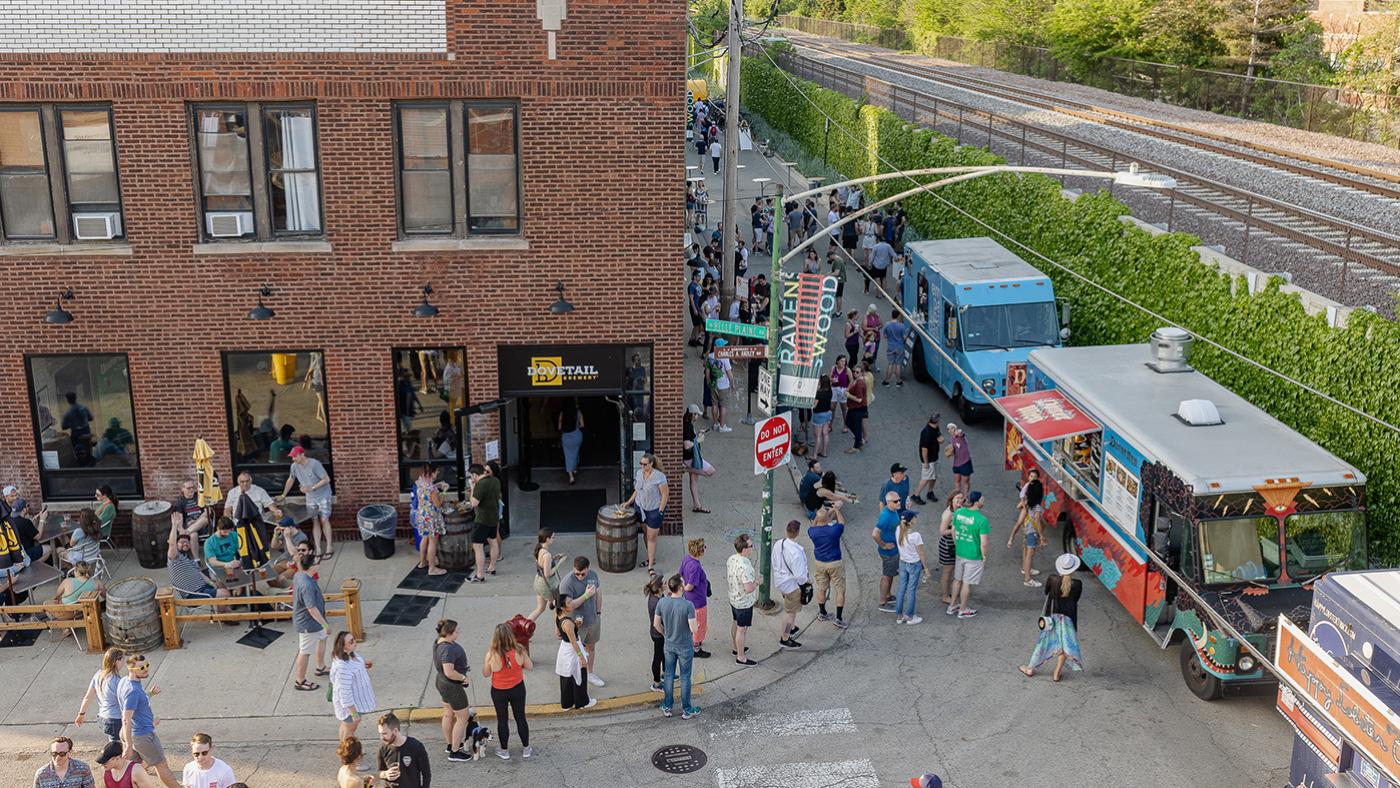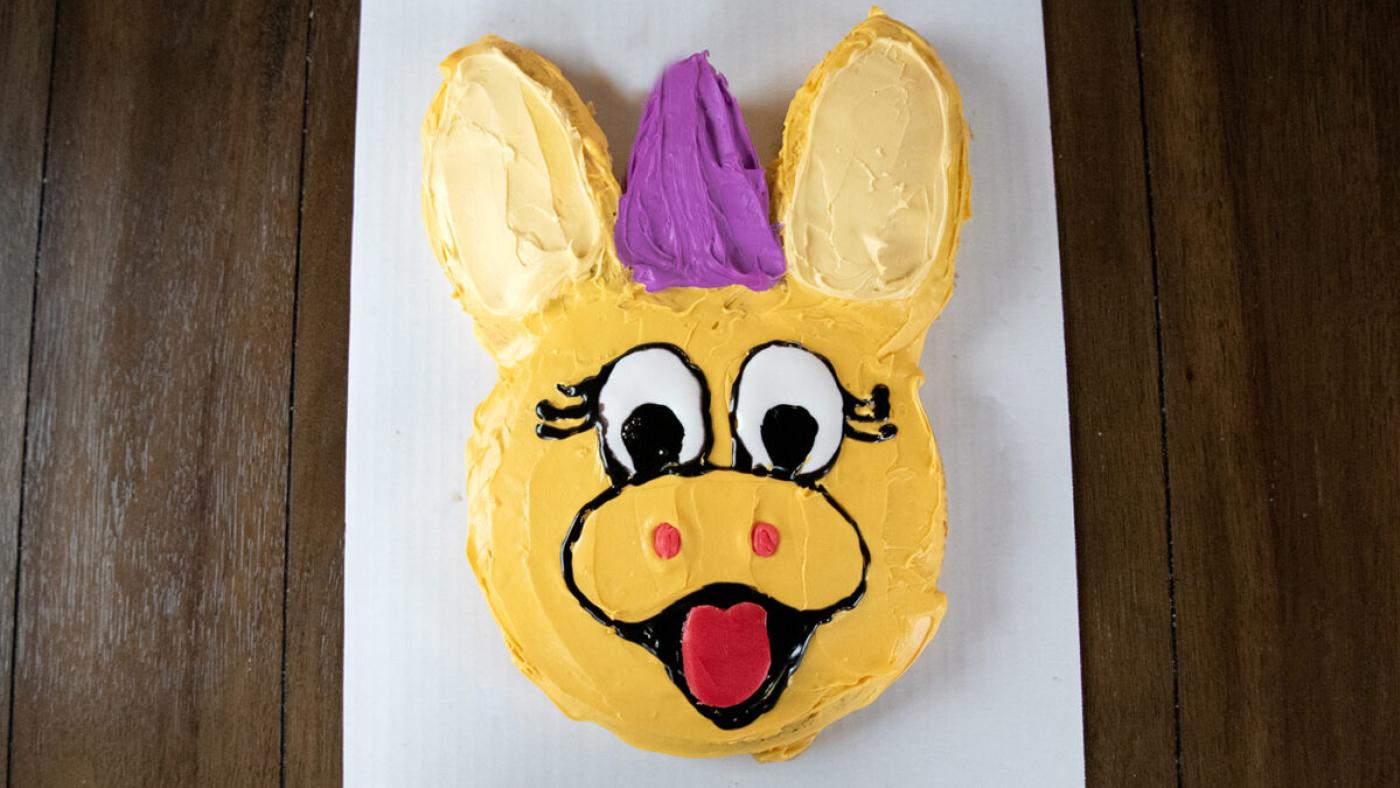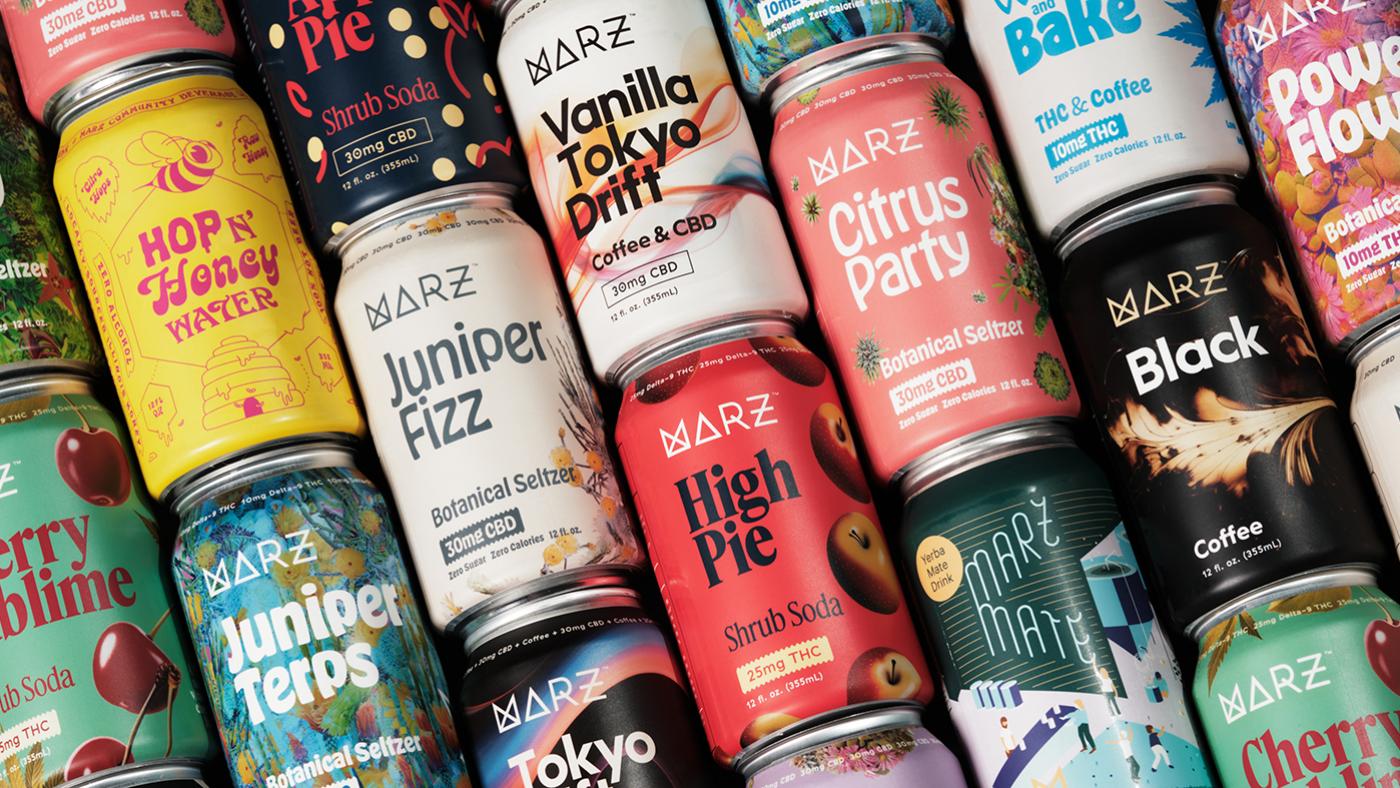The Duck Inn Has Survived 10 Years in Bridgeport. It Has Contributed to a Changing Neighborhood – and Won Accolades – Along the Way
Daniel Hautzinger
April 2, 2024
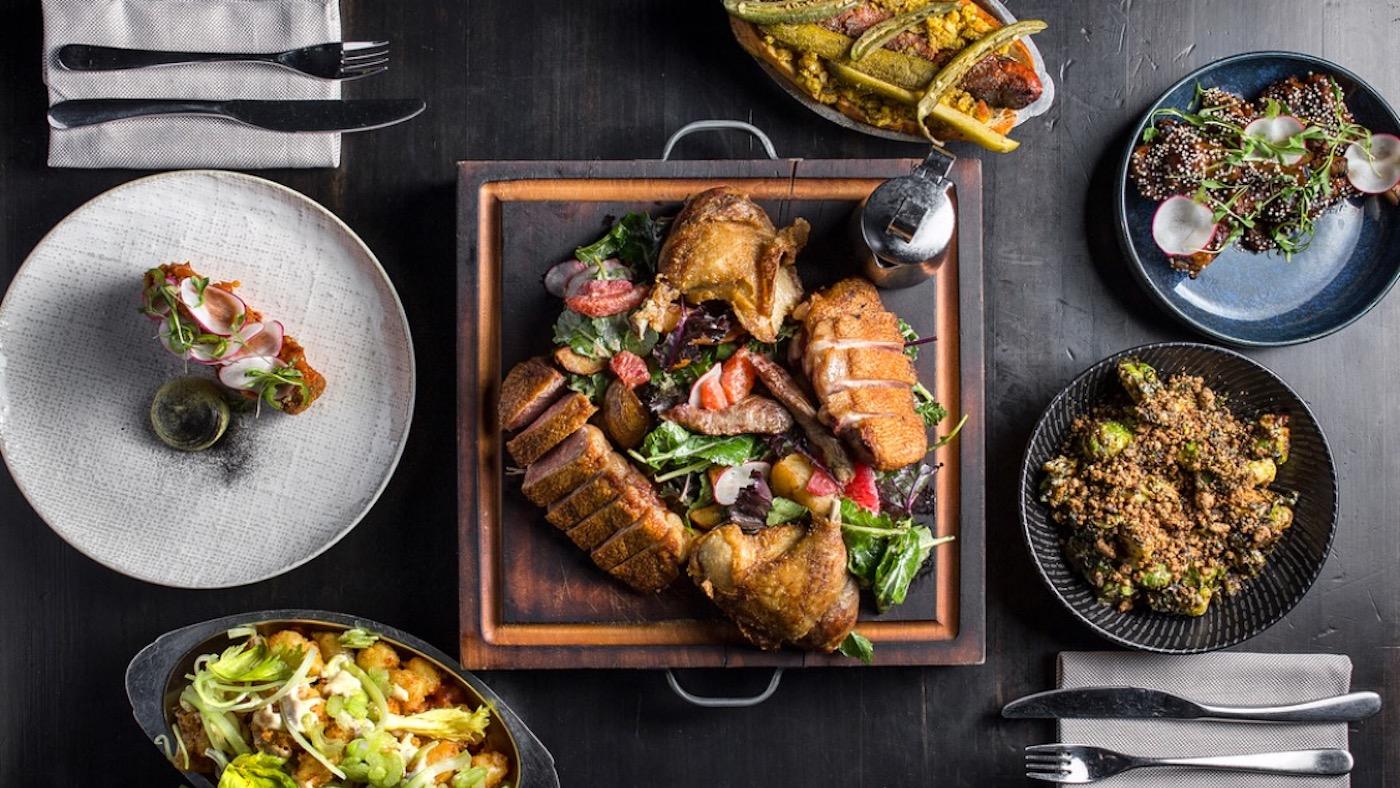
Get more recipes, food news, and stories by signing up for our Deep Dish newsletter.
The Duck Inn is not the restaurant Kevin Hickey wanted to open. The chef had spent almost two decades making his name at Four Seasons hotels and was itching to have a place of his own, preferably in the fast-developing West Loop alongside such stars as The Girl and the Goat. Instead, he returned to the neighborhood where generations of his family had lived to take over an old corner bar across from industrial sites and at least two blocks from any other consumer-facing business, let alone a sit-down restaurant.
Now, as it nears its tenth anniversary at the end of this year, The Duck Inn is a Chicago institution and a semifinalist for Outstanding Restaurant in the James Beard Awards, a national recognition from America’s biggest food awards that has been bestowed upon such illustrious Chicago restaurants as Alinea, Charlie Trotter’s, and Frontera Grill. But that doesn’t mean success has always been assured.
“People are always like, ‘It’s so inspiring that you opened a bar on the street you grew up on. You deserve so much credit,’” says Hickey. But, “In some ways, it was an act of desperation.”
He had looked at numerous locations in the West Loop that now house popular establishments, but couldn’t come up with the funding to build out a new restaurant. After a meeting in which his preferred spot was given to someone else, his lone investor pulled out because the business was too stressful. Hickey drove home to the childhood house he had bought from his dad and decided to finally inquire about a tavern for sale down the street.
Gem-Bar had been on the market for months, and people had encouraged Hickey to buy the building, which is now 135 years old, for his restaurant. After all, he knew the place and the family who owned it from when he was a kid. But Hickey’s reaction had been, “We’re not going to open a restaurant in Bridgeport. Nobody’s going to come. The neighborhood’s not going to be into what I want to do.”
After the disappointment over the loss of the West Loop lease, however, he set up an appointment to view the property. The price was right, even if the location didn’t seem to be. He decided to buy it.
The Duck Inn is located in a grouping of a few residential blocks cut off from the rest of Bridgeport – or anything else – by the Chicago River, its once notoriously polluted Bubbly Creek offshoot, railroad tracks, and the Stevenson Expressway. For decades, the view across the river was of piles of coal. According to Hickey, his grandfather was employed by the Works Progress Administration during the Great Depression to shovel coal from one side of the street to the other. Waterfront land on the restaurant's side of the river was owned by ComEd and had to be remediated due to contamination before being developed into a park with a Jeanne Gang-designed boathouse, according to Hickey. Even during his childhood, the area didn’t have curbs or sewers, and the streets were wrecked by potholes.
“This was not a pretty street” back then, Hickey says.
But in the early 2010s there were some signs – like that park – that the area and Bridgeport were starting to transform. Hickey decided that he could contribute to a renaissance that would ideally fill Archer Avenue and Halsted Street with small businesses once again. His efforts joined similar ventures by people like his friend Ed Marszewski, who had recently updated his mother’s establishment into Maria’s, a bar catering to a younger, more urbane crowd.
Gem-Bar “was very much a neighborhood tavern,” Hickey says, “full of city workers and the neighborhood people. It was a social gathering place.” The owner of the bar sponsored a Little League team and tended not only the bar but also the bridge across the street, watching for masts from his bar window in order to go raise the bridge for a boat. “If the bridge went up, everybody got a free drink,” Hickey says.
Hickey wanted to keep the community feel of that neighborhood tavern but update it, while also drawing people from across Chicago. He named his restaurant after one owned by his great-grandmother and styled it with mid-century modern furnishings and historic curios of the neighborhood, like trophies from a nearby bowling alley that he found in the basement and dusted off to put on display – including one with his dad’s name on it. He devised a menu inspired by his childhood in the area, drawing not just on the food of the European immigrants who lived in Bridgeport but also from neighboring Chinatown (the rotisserie duck recalls Peking duck) and Pilsen (as in a foie gras tamale that was on an early menu). There were also Chicago and Midwestern bar foods like a Chicago-style duck fat hot dog that he had first devised at the Four Seasons, and fried cheese curds, to be enjoyed with drinks by beverage director Brandon Phillips, whose concoctions are a bit more artisan than what had previously been enjoyed in the building.
Hickey had enough of a reputation from his work at the Michelin-starred Seasons at Chicago’s Four Seasons and its more casual successor, Allium, to draw critics to Bridgeport, and The Duck Inn soon won a rush of accolades: best new restaurant from Esquire, restaurant of the year from Eater Chicago, chef of the year and bartender of the year from the Chicago Tribune. The press guaranteed business for a while – but, as with almost any restaurant, eventually the buzz fades and there are other hot new restaurants to try. And there’s no foot traffic by The Duck Inn, no Restaurant Row like in the West Loop to draw people who decide to stop in to one place after finding the wait at another too long.
“It was really rough,” Hickey says of his fourth or fifth year of the restaurant. He’s an outsized presence, gray-goateed and affable, but personality, connections, and talent don’t guarantee success in the tight-margin restaurant industry. He credits owning the building with saving the business. “There were many times that we didn’t pay rent, or reduced the rent down to the barest minimum, [just] so I could cover the mortgage,” he says. For a time, he was also drawing a salary from working with another restaurant group that had offered him a job after he left the Four Seasons while he worked to renovate and open The Duck Inn.
But as Bridgeport and the surrounding neighborhoods slowly changed, The Duck Inn began to build up a loyal local customer base that ensures more steady business. Whereas initially most guests came from outside the area, in Hickey’s estimation, he now thinks the majority are from Bridgeport, Chinatown, Pilsen, and the South Loop. He hands beers or hot dogs over the fence to neighbors if he sees them grilling; The Duck Inn’s relaxed back patio is essentially a backyard, where the restaurant hosts occasional pig roasts. New real estate developments have gone up at the ends of the block, and new demographics who are “looking for what we’re offering” have moved in, Hickey says. He’s seen real estate fliers for nearby homes advertising his restaurant as an attraction.
While such changes in neighboring Pilsen have led to debates over gentrification, concerns have been more muted in Bridgeport – perhaps in part because much of the push for development is being spearheaded by people with deep roots in the neighborhood, such as Hickey and Marszewski. “Things have to change if you want people to live here and new businesses to open, and the community to thrive in different ways,” a neighborhood resident told WTTW News last year as the reopening of the almost-century-old Ramova Theatre on Halsted Street approached.
Hickey has tried to revitalize Bridgeport not just through his restaurant but through his association with the neighborhood at large – he even fights to prevent property in the neighborhood from being zoned for industrial uses, in order to continue to make the area a more desirable place to live. Such detailed involvement led him to sit on a committee years ago that studied the Halsted Street corridor. The detailed report that emerged ended with a simple recommendation to spur development: reopen the Ramova.
In fact, Hickey was already interested in reviving the theater, and has been a major part of its resurrection. He recalls going to see it and consider possibilities for redevelopment in early 2014, even before he had opened The Duck Inn. The Ramova had been vacant for thirty years and was in dismal shape, but the city struggled to find developers to buy it.
He eventually connected with Tyler and Emily Nevius, who were living in New York but wanted to move back to Chicago and open a theater with a brewery. (The gregarious Hickey seems to know or be related to anyone that has, or might have, anything to do with Bridgeport.) The Neviuses bought the building and redeveloped it, bringing in a Brooklyn brewery and tapping Hickey and Phillips to create a new version of the adjoining Ramova Grill, including a version of its famous chili and other lightly cheffed up messy Midwestern classics.
The Ramova finally reopened at the beginning of this year, and Hickey says it’s already having an effect on Halsted. “There’ll be some interesting things happening very soon,” he says. But he’s quick to give most of the credit to the Neviuses, “who just never give up, which many – most – would have – should have.”
Clearly some of the credit for Bridgeport’s current dynamism goes to Hickey, too. "Chef Hickey’s knack for foresight and investment in the ward have brought to a wider audience what many of us who have lived here for generations knew all along – the 11th Ward is a great place to be," says Alderperson Nicole Lee, whose ward includes Bridgeport.
And Hickey is not done with the area yet, he says. “There’s more I would love to do in this neighborhood.”

